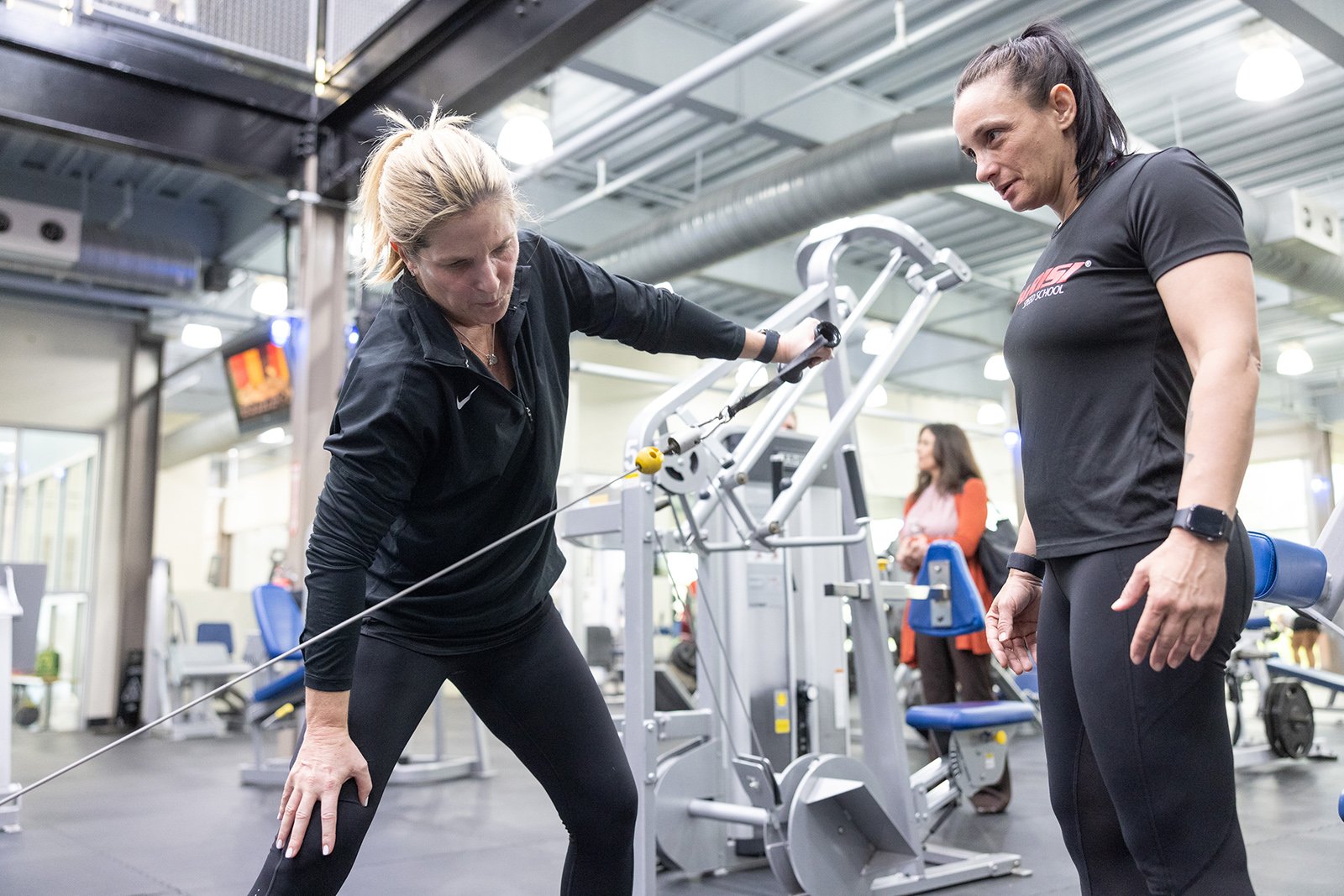
Aging is a natural part of life, but it doesn't mean we have to accept a decline in physical strength and vitality. In fact, maintaining and even building strength becomes increasingly important as we age. Strength training, also known as resistance or weight training, is a powerful tool for aging well. Let's explore the compelling reasons why strength training is essential for individuals as they journey through the aging process.
Preserving Muscle Mass
In studies, researchers have found that approximately 30% of adults ages 70 and older struggle with age-related mobility issues. These issues include trouble walking, rising from a seated position, or going up or down the stairs. This struggle with mobility leads to more falls, chronic diseases, moving into nursing homes, and dying sooner, according to the National Institute on Aging.
One of the most noticeable effects of aging is the loss of muscle mass, a condition known as sarcopenia, which affects 5-13% of those ages 60 and up and as much as 50% of people ages 80 and older, according to the Cleveland Clinic. Strength training helps combat this by stimulating muscle growth and preserving existing muscle tissue. By doing so, it enables older adults to maintain their mobility and independence.
Managing Chronic Conditions
Strength training can help manage or prevent several chronic conditions associated with aging, including arthritis, heart disease, and high blood pressure. It can alleviate symptoms, improve cardiovascular health, and enhance overall well-being.
Several other chronic conditions that are not associated with aging but can still have a significant negative impact as someone ages, such as obesity and diabetes, are also positively impacted by strength training, per the Mayo Clinic. As we age, our metabolism tends to slow down, making weight management more challenging. Strength training can boost metabolism by increasing lean muscle mass. This, in turn, aids in weight control and may reduce the risk of chronic diseases like type 2 diabetes.
For those over 60, strength training can help improve or even reverse these types of conditions. For those younger, however, beginning and continuing a strength training practice can ensure a smoother, more enjoyable aging process.
Promoting Mental Health
Physical health is closely linked to mental well-being, according to the Mental Health Foundation. In fact, approximately one-third of people with a physical health condition also have a mental health condition. The most common of those mental health conditions are anxiety and depression.
Engaging in regular strength training releases endorphins, which can boost mood and reduce symptoms of anxiety and depression. It also enhances cognitive function and may reduce the risk of age-related cognitive decline.
Maintaining Functional Independence
The ability to perform daily activities independently is crucial for maintaining a high quality of life. Strength training ensures that muscles stay strong for everyday tasks like lifting groceries, climbing stairs, or getting in and out of chairs. Falls are a significant concern for older adults, often leading to serious injuries. Strength training improves balance, coordination and stability, reducing the risk of falls and enhancing overall mobility.
The Washington Post states that performing these types of functions requires four things:
- Cardiovascular fitness
- Flexibility
- Muscle strength and power
- Dynamic balance
Walking can help with cardiovascular fitness and dynamic balance, and yoga can improve flexibility. But the only thing that will help you build or keep muscle strength and power is strength training.
Supporting Joint Health
Strength training can alleviate joint pain and stiffness associated with conditions like arthritis and osteoporosis. It strengthens the muscles around the joints, providing better support and reducing discomfort from arthritis.
Osteoporosis, a condition characterized by fragile bones, is more common in older adults, particularly women. Strength training has been shown to increase bone density and reduce the risk of fractures, improving overall bone health and stability and reducing the injuries often associated with the condition, according to the Centers for Disease Control.
Strength Training: Part of Everyone's Lifestyle
Strength training is not just for bodybuilders or athletes; it's a vital component of healthy aging. By incorporating regular strength training into your routine, you can preserve muscle mass, enhance bone density, improve metabolism, boost balance and stability, manage chronic conditions, promote mental health, maintain functional independence, and support joint health.
Aging gracefully doesn't mean accepting physical decline; it means embracing the opportunity to stay strong, active, and resilient. Strength training empowers individuals to age with vitality, ensuring that the later years of life are marked by health, independence, and an active lifestyle.










